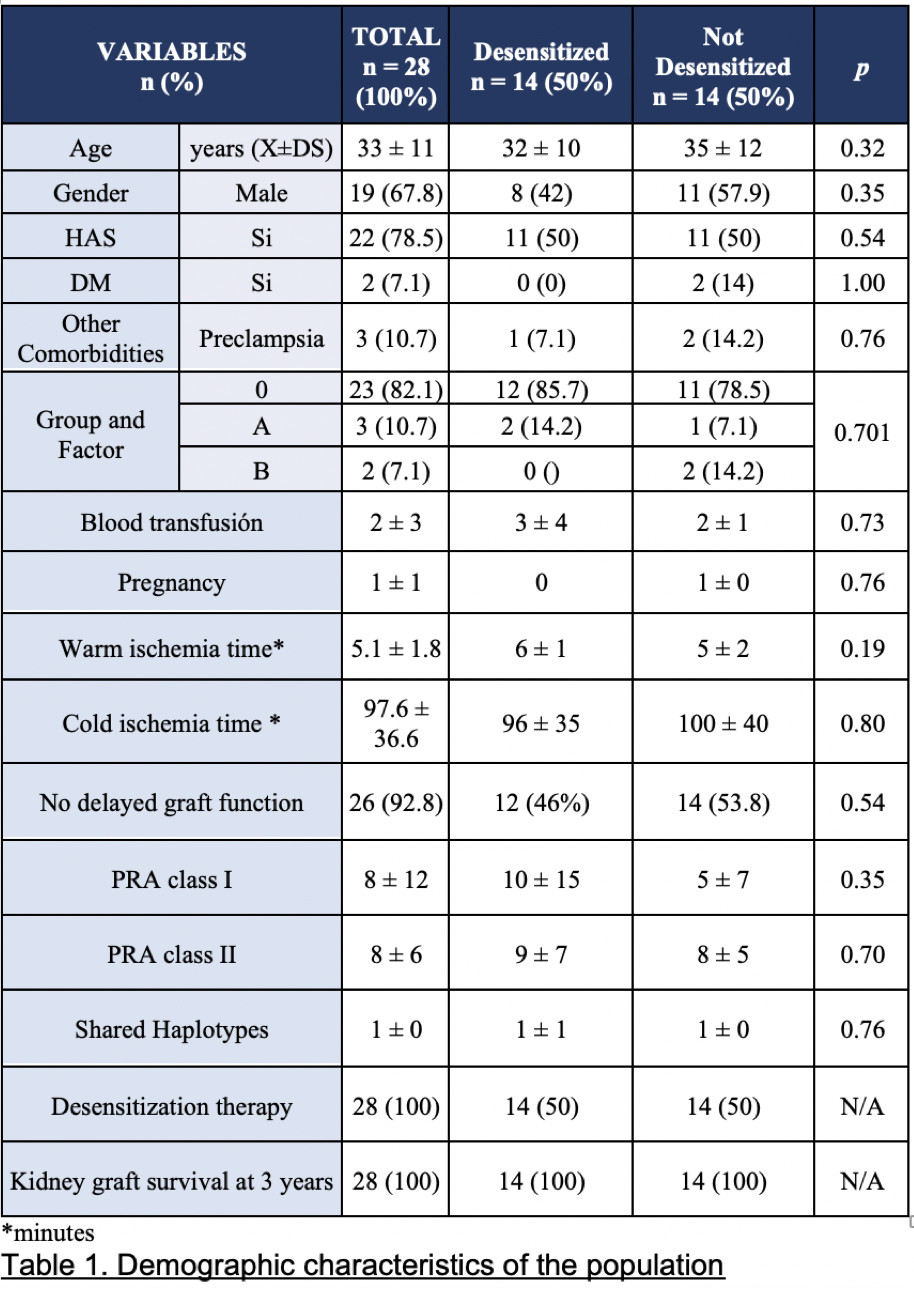Effect of renal pre-transplant desensitization on renal graft function and survival at 1 and 3 years
Lionel Cristian Vargas 1,2, Luis Garcia Cobarruvias2, Hector Hinojosa Heredia1,2.
1Department of nephrology, General Hospital of Mexico "Dr. Eduardo Liceaga", Ciudad de Mexico, , Mexico; 2Transplant Departament, General Hospital of Mexico "Dr. Eduardo Liceaga", Ciudad de Mexico, , Mexico
Background: Kidney transplant is the treatment of choice, offering better quality of life and survival to patients with Chronic Kidney Disease. The use of Immunoglobulin, rituximab and plasma exchange in sensitized patients as desensitization therapy, allows Renal Transplantation by shortening waiting list times, acceptable results, improvement in quality of life and long-term survival of the patient compared to those who remain in dialysis. However, most of the published studies on desensitization approaches have limitations and therefore need to be analyzed further. The objective of the study was to describe the effect of desensitization prior to kidney transplantation on renal graft function and survival at 1 and 3 years.
Methodology: Observational, retrospective, and analytical study nested in a retrospective cohort of adults treated at the Hospital General de México during the period from 2011 to 2020, with living donor kidney transplantation, undergoing and not undergoing desensitization therapy according to institutional protocol. Statistical analysis: descriptive statistics, comparison of variables between groups applying the Mann Whitney U test and Fisher's exact test. Survival using Kaplan Meyer curves and the difference between populations using the log rank test (p < 0.05, 95% CI).
Results: 28 patients in total, 50% patients did not receive desensitization therapy and 50% received desensitization therapy. 67.8% were men. The average age was 33 years. 17.8% of patients developed antibody-mediated rejection, of which desensitized patients were 21.4% and non-desensitized patients were 14.2%. When comparing groups, no statistical significance was found (P=0.581).


Conclusions: Desensitization therapy in patients with high immunological risk is an option to consider in those patients highly sensitized to a living donor.

right-click to download
